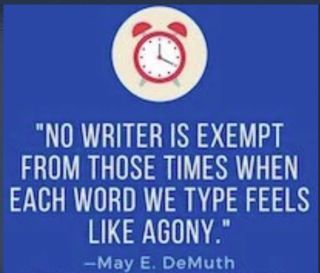Writing has been instrumental in my healing process since I first stepped into a writing workshop in 2007. I was trying to heal from a major depressive episode that forced me to resign from my first social work position and required six inpatient admissions over a span of 18 months. I also endured a course of ECT (electroconvulsive therapy) that affected my memory.
No wonder I was looking for solace when I walked into the building that housed a local writers’ center in my community. It was literally a one-room schoolhouse, except it was an old train station, not used, but still right next to the train tracks. The building was also right on the Hudson River so I always tried to sit on the side of the table that afforded me that magnificent view.
James Pennebaker, a psychologist at the University of Texas at Austin, has studied how writing about emotional upheavals in our lives can improve physical and mental health. Pennebaker found that “One of the brain’s functions is to help us understand events in our lives. Writing helps construct a narrative to contextualize trauma and organize ideas.”
What I found when I wrote is it wasn’t even about my mental health diagnoses and what I experienced during the three decades I was so ill—the numerous psychiatric admissions, the cutting, the starving, the multiple suicide attempts. It was important to process those, but it was more important to dig underneath and process what caused me to become sick. I wasn’t sexually abused, a trauma widely perceived as a cause of borderline personality disorder, nor was I physically abused. I was emotionally and verbally abused by my alcoholic father and I grew up in an invalidating environment as described by Marsha Linehan. When I cried, as I often would, my father in his intoxicated state would say to me, “Stop crying or I’ll really give you something to cry about.” I learned to halt my tears and flee to my room.
Harvard Health suggests that the process of writing may enable us to learn to better regulate our emotions. “It’s also possible that writing about something fosters an intellectual process — the act of constructing a story about a traumatic event — that helps someone break free of the endless mental cycling more typical of brooding or rumination.”

© Writers Digest
Writing helped me shed my anorexic identity. I was able to replace the idea that I only existed to be anorexic and introduce the idea that I could potentially be a writer. The high I felt from seeing the numbers decrease on the scale was only rivaled by the high I felt when I saw my name in print. Writing was not compatible with starving. I discovered that if I was malnourished, my cognitive ability was impaired and I was unable to write well. I made the choice to write. The more I wrote, the calmer and less impulsive I became across all aspects of my life. I stopped cutting myself. I didn’t have the need to weigh myself as often, which led to less obsessing over the numbers. I wasn’t consciously counting calories. I focused my efforts on crafting the perfect sentence, paragraph, and essay. The sense of accomplishment I used to feel when I looked in the mirror and saw my bones I now felt when I hit “send” to submit a piece to a literary journal or magazine.
At a week-long writing workshop I attended, I sat in the audience listening to a panel of authors. During the Q & A period I waited until the end and raised my hand. “How do you know when you’re a writer?” I practically whispered. The author leaned in and answered, “If you write, then you’re a writer.”
And so I am.
Thanks for reading.
Andrea
